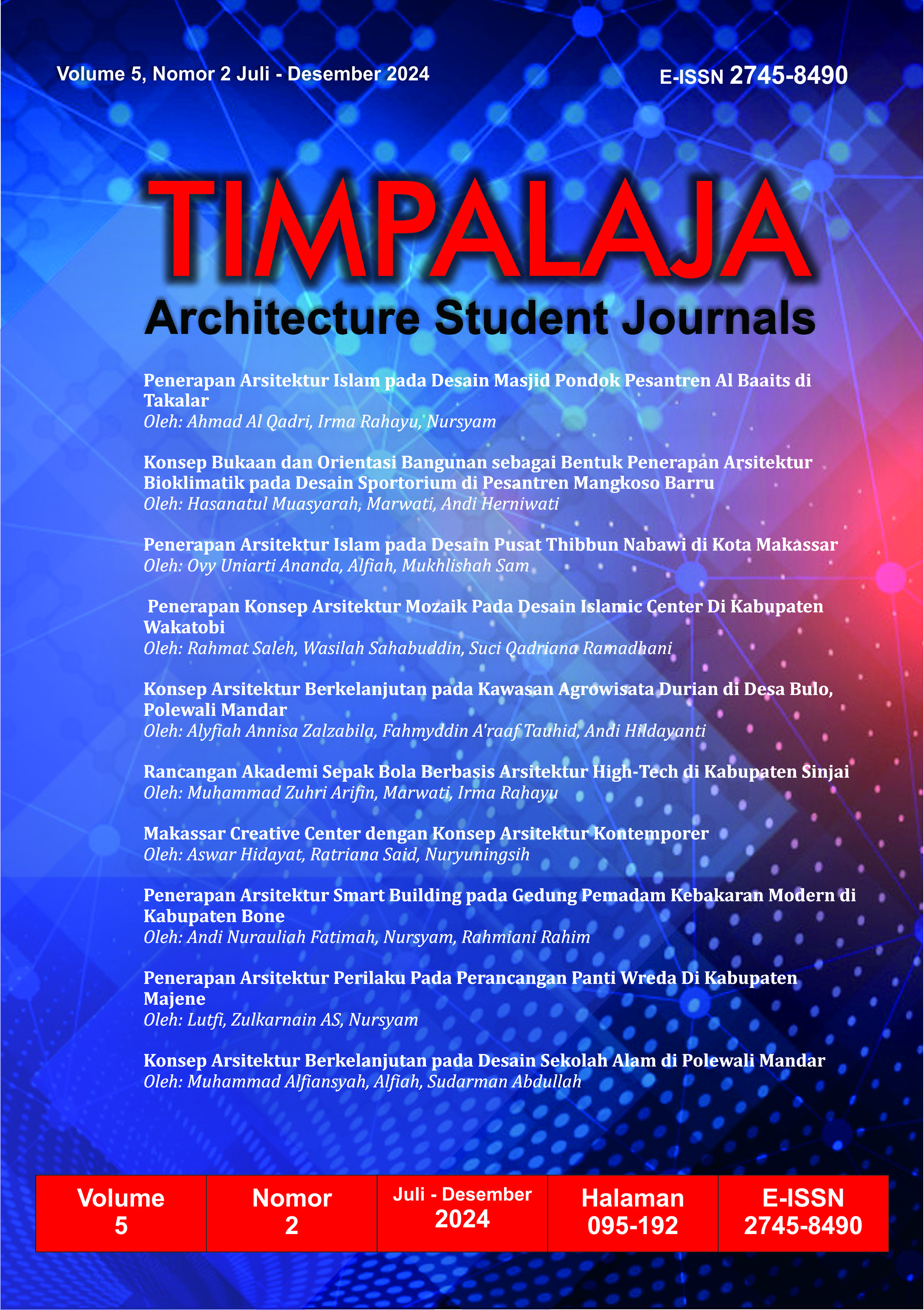Penerapan Arsitektur Dekonstruksi pada Perancangan Makassar Creative Hub
Abstract
Deconstruction architecture has become a controversial style with varying opinions about its unconventional nature. This concept emerged in response to the boredom and fatigue of existing modern architecture and is currently being applied in the design of Creative Hub buildings in the modern era to avoid the monotony of typical geometries. The application of Deconstruction architecture in performance buildings is considered suitable as a means to illustrate the principles of deconstruction architecture in the modern context. This research uses a qualitative descriptive method and collects data through a literature study related to Deconstruction architecture. The analysis results show that Creative Hub adopts the concept of Deconstruction architecture by applying principles such as hybrid forms (combination of forms), form complexity, aesthetics and ornamentation, strong symbolism, disorder, disharmony, the use of metaphors, distortion, and contrast in its design."
References
Kostanski, L., & Puzey, G. (2014). A tale of two cities of literature: Toponymic identity and the promotion of Edinburgh and Melbourne in the UNESCO Creative Cities Network. Els Noms En La Vida Quotidiana: Actes Del XXIV Congrés Internacional d’ICOS Sobre Ciències Onomàstiques, Annex, Secció, 6, 1–12.
Mahdi, N. Z. (2018). Taman edukasi di Makassar dengan tema desain dekonstruksi (Undergraduate thesis). Departemen Arsitektur, Fakultas Teknik, Universitas Hasanuddin, Gowa.
Nazamuddin, S. E. (n.d.). Pembangunan industri kreatif dalam mendukung pariwisata Aceh. Journal of Creative Economy Development, 3(2), 45–58.
Oktafiani, T. U., & Rohman, M. M. (2020). Menimbang hermeneutika dekonstruksi Ibn ‘Arabi. An-Nufus: Jurnal Pemikiran Islam, 2(2), 17–47. https://doi.org/10.12345/an-nufus.v2i2.2020
Anjarwulan, S. P. (2019). Sains dan teknologi bangunan dekonstruksi dalam karya Zaha Hadid. Jurnal Arsitektur GRID, 1(1), 22–35.
Ashadi. (2019). Konsep dekonstruksi dalam arsitektur. Jakarta: Arsitektur UMJ Press.
Siregar, M. (2019). Kritik terhadap teori dekonstruksi Derrida. Journal of Urban Sociology, 2(1), 65–75. https://doi.org/10.12345/urban-soc.v2i1.2019
Ghozali, M. F., & Zuhri, S. (2020). Ekspresi estetika dan simbolik pada arsitektur kontemporer dengan pendekatan metafora. Widyastana: Jurnal Mahasiswa Arsitektur, 1(1), 34–43.
Copyright (c) 2024 Asyraful Anam, Irma Rahayu, Burhanuddin Amin

This work is licensed under a Creative Commons Attribution-ShareAlike 4.0 International License.
By submitting your manuscript to our journal, you are following Copyright and License







